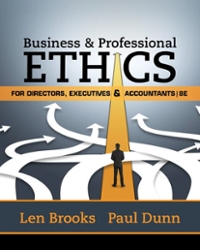In1 March 1994, six African Americans employed at Texaco Inc. filed a class action lawsuit on behalf
Question:
In1 March 1994, six African Americans employed at Texaco Inc. filed a class action lawsuit on behalf of 1,400 current and former African American employees. They alleged that Texaco had systematically discriminated against them in terms of promotions and had fostered a hostile corporate environment for minority employees.2 Richard Lundwall was the senior coordinator of personnel services in the Finance Department at Texaco’s office in Harrison, New York. During an August 5, 1994, deposition,3 he testified that he and other officials in Texaco’s Finance Department retained records relating to the promotion of minority employees. He was asked to produce these documents. On August 14, 1994, Lundwall attended a meeting with other members of the Texaco Finance Department to discuss the production of these requested documents.
Among the officers attending this meeting were Robert Ulrich, treasurer; David Keough, senior assistant treasurer; and various division heads, such as Peter Meade, Brian Ashley, Pete Wissel, and Steve Carlson.4 Prior to entering the meeting, Lundwall placed a small tape recorder in his pocket and turned it on. When later asked why he had taken such action, he stated that “over the years I’ve seen a number of people thrown to the wolves when something went wrong, and I didn’t want to be fodder for the wolves.”5 On a more practical level, however, Lundwall was also in charge of taking minutes of the meeting and found that recording the meetings ensured the accuracy of the minutes.6 He stated that after the meeting, he placed the tapes in his desk and forgot about them.7 In the spring of 1996, Lundwall was informed that he was being downsized out of his job and had to leave Texaco by the end of August 1996. After thirty-one years of loyal service to Texaco, he expected more; he had seen other employees being pushed out when they reached fifty-five years of age and realized that the same thing was now happening to him.8 It was not until he was in the hospital recovering from surgery in March 1996 that he remembered the tapes and had time to listen to them.9 Lundwall maintains, on an interview on 60 Minutes, that he had only to mention his possession of the tapes to a senior executive, and his job would have been secure. When asked why he did not take such an action, he responded, “It’s not the right thing to do. That’s called extortion and that’s illegal. And … the world’s a crummy enough place without adding to it.”........
Questions:-
1. In a company as progressive as Texaco, what permitted such discrimination to occur?
2. How could such discrimination have been prevented?
3. Is whistleblowing ethical?
4. Could a protected whistleblowing mechanism or conscientious ombudsperson have helped?
Step by Step Answer:

Business And Professional Ethics
ISBN: 9781337514460
8th Edition
Authors: Leonard J Brooks, Paul Dunn





